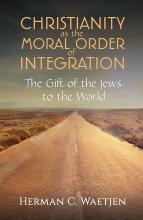
|
Christianity as the Moral Order of Integration: The Gift of the Jews to the WorldThis book tells the story of an ancient journey that began before the Bible originated, but it is a story that the Bible has preserved. It is the journey that Abram and Sarai initiated in response to God's summons, "Go from your country and your kindred and your father's house to the land that I shall show you." No immediate destination is named, and they have no country, no kingdom and, therefore, no ethnic identity, but God has warranted to them endless blessings through a unified mutuality of trust. Purchase at Amazon (site friendly) |
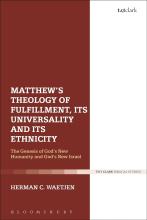
|
Matthew's Theology of Fulfillment: Its Universality and Its EthnicityThe interpretation of this gospel integrates an objective analysis of its historical context and a subjective semantic disclosure of meaning. To that end, a close reading of the text is combined with consistency building in order to achieve textual congruence and plenitude of meaning. The subject/ object split of traditional biblical scholarship that requires analysis in order to produce explanation as a definable object is superseded in this book by the event of reading as a dynamic happening of personal experience from which the reader cannot detach herself or himself. Purchase at Amazon (site friendly) |
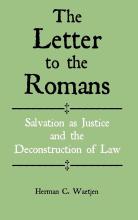
|
The Letter to the Romans: Salvation as Justice and the Deconstruction of LawRomans, says Waetjen, is the first publication of the Christ movement. To understand it well is therefore a task of monumental importance, and to understand it today requires a postmodern hermeneutics, in which the interpreter's subjective experience of reading the text is correlated with historical-critical knowledge and socialscientific criticism. That hermeneutics has to create a new genre of commentary, making room for readers' prior understandings as well as for a dynamic form of close reading and consistency building. Purchase at Amazon (site friendly) |
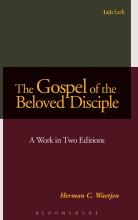
|
The Gospel of the Beloved Disciple: A Work in Two EditionsThere is a general consensus that the Fourth Gospel underwent two editions. But in contrast to all previous efforts to reconstruct these two editions on the basis of source and redaction criticism, Waetjen maintains that these two editions essentially overlap without far-reaching changes. Chapter 1-20 originated within the Jewish community of Alexandria and were addressed to Jews in order to persuade them to "believe into" Jesus as the Messiah, the Son of God. Purchase at Amazon (site friendly) |
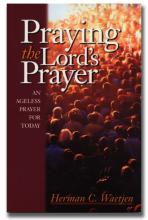
|
Praying the Lord's Prayer: An Ageless Prayer for TodayPraying the Lord's Prayer intends to make a major contribution to the rehabilitation of this prayer Jesus taught his disciples almost two thousand years ago. It does this by establishing a frame of reference from which the Lords Prayer is to be prayed and by which the meaning of its individual petitions becomes transparent. The Epilogue presents a version of the Lords Prayer for the future based on the interpretation of the Prayer itself. Purchase at Amazon (site friendly) |
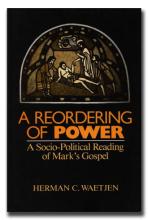
|
A Reordering of Power: A Socio-Political Reading of Mark's GospelA reader-response treatment of the Gospel according to Mark which takes into account the socioeconomic and political realities of Mark's context. Purchase at Amazon (site friendly) |
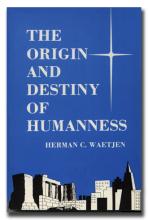
|
The Origin and Destiny of HumannessOn the basis of a literary-critical and historical-critical interpretation, this book concludes that Matthew's Gospel was addressed to Christian Jews who were being persecuted by their fellow Jews because they acknowledged Jesus to be their long-awaited Messiah. The Gospel structures the life and career of Jesus according to a Pentateuchal design, and each of the five books is composed of narrative and discourse. The Pentateuchal structure however, is shattered by the death and resurrection of Jesus which is narrated in chapters 26-28 after the five books of narrative and discourse have been concluded at 26:1. The Evangelist's objective is to convince these addressees that they now constitute the New Israel and are therefore the true people of God. |